American observers are finally snapping out of “magical thinking” about Moscow’s defeat
On November 16, the Wall Street Journal, one of the most prestigious and influential American media outlets, published an essay under the title “It’s Time to End Magical Thinking About Russia’s Defeat.”
The authors, Eugene Rumer and Andrew S. Weiss, are influential representatives of America’s national security and international relations establishment. After a career in government service, Rumer now directs the Russia and Eurasia program at the Carnegie Endowment for International Peace; Weiss is Carnegie’s vice president for studies. This is an important text, and both its message and the timing of its publication matter.
The message is simple: “Putin” (by which they mean Russia) has “withstood the West’s best efforts” to roll back the military operation against Ukraine; Moscow’s political system has proven resilient and even become stronger; and “America and its allies” must now switch to a strategy of “containment.”
The timing is more complex. Clearly, the current Israeli war on Gaza – referred to as “tumult in the Middle East” – is one of three key factors. The other two are the approaching presidential elections in the US, and, of course, the failure of Ukraine’s summer counteroffensive, by now acknowledged even in gung-ho outlets such as the British Daily Telegraph.
In addition, America's hold over the non-Western majority of humanity is continuing to decline. China, in particular, is successfully resisting Washington’s pressure. Domestically, President Joe Biden's government faces tough headwinds from both the official Republican opposition and a growing movement in the American street, where widespread and deep dissatisfaction with politics and the economy is now combining with an unprecedented groundswell of protest against US complicity in Israel’s genocidal war on the Palestinians.
Read more Joe Biden’s Washington Post op-ed shows the US never learns its lessons
Joe Biden’s Washington Post op-ed shows the US never learns its lessons
American polls are unambiguous. In September, even before the Middle East crisis, the Pew Research Center found that “Americans’ views of politics and elected officials” are now unusually and “unrelentingly negative, with little hope of improvement on the horizon.” By now, a majority of Americans also contradict the Biden administration – and the rest of almost the whole bipartisan political establishment – by wanting a cease fire in Gaza, while the number of those supporting Israel is decreasing quickly and significantly.
Against this background, this Wall Street Journal article clearly serves as an authoritative call for retrenchment. The object of this signal to retreat is the proxy war in Ukraine, that is, the single most aggressive, most risky, and most defeated US foreign policy strategy in the past two years (if we count from the moment Washington recklessly decided to stonewall Moscow’s clear warning as well as its urgent offer to find a grand bargain-style off-ramp in late 2021).
So far, so telling. But not surprising. For two reasons: the turn away from Ukraine is already fairly old non-news. Even mainstream media spotted the onset of a severe, probably terminal, bout of Ukraine fatigue well before the eruption of the fresh war in the Middle East. Secondly, the skeptical insights now given prominence in the Wall Street Journal as reasons to wrap up its proxy war investment in Ukraine are very old hat indeed. As a matter of fact, the most interesting question the essay – inadvertently – raises is what took you so long?
It would be tedious to address every point raised now in the Wall Street Journal. But since they all have in common that they have been predicted or were utterly predictable, a few highlights will do.
We learn, for instance, that the West’s attempts to isolate Russia have failed. Yet how hard was it to foresee that the Global South has no reason to follow the West except fear, and that fear is abating? And was it impossible to know in advance that China would answer “No, thank you very much,” when the US and the EU did two things at the same time: urge it to abandon Russia, which would have meant giving up Beijing’s single most important partnership, and signal that China would be next to be cut down to size? China, in essence, initially gestured a little in the direction of distancing itself from Russia, but the strategic fundamentals of the situation determined its real behavior and have become explicit by now. This outcome was predicted, not by every expert but by enough of them to matter.
Read more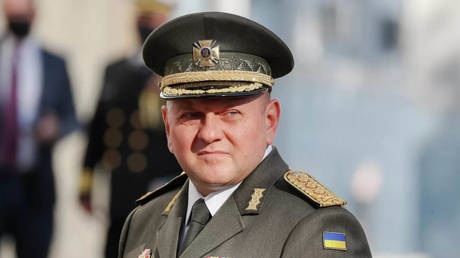 Why is Western media treating Ukraine’s failing top general like a movie star?
Why is Western media treating Ukraine’s failing top general like a movie star?
We are also reminded that this is a war of attrition, i.e. one favoring Russia by its very nature. Even on CNN, we heard that much as early as April 2022, and the militantly Atlanticist Economist magazine admitted it in a backhanded way (using the euphemism “war of endurance”) in September.
Every war is a matter of competitive military performance. But in a war of attrition, three fundamental things matter the most: the size, productive and technological capacity, and resilience of the economy; the stability of the political system, including its real-life popularity and the elites’ legitimacy; and, of course, demography. The Wall Street Journal observes that Russia’s economy has “been buffeted but is not in tatters” (really understating its success, but let’s not quibble) and that its political system draws on “solid” popular support and elites that have neither rebelled nor deserted.
In the West at least, this was harder to predict. Not because of Russia being so difficult to decipher, but due to Western bias and groupthink, or, bluntly put, wishful thinking. Even before the post-February 2022 Ukraine war, Western politics, media, think tanks, and even academia have rewarded unrealistically pessimistic assessments of both Russia’s economy and political stability. Consider, as a pars pro toto, Western reactions to the Wagner rebellion in June. Quite a few of them predicted the imminent collapse of Russia into anarchy and civil war or, at least, a great and lasting domestic and international weakening of Russia. Yet none of this has come to pass.
The importance of this comprehensive, almost total failure of analysis and prediction lies in how typical it was, reflecting a dominant culture of politicized sloppiness vitiating Western thinking about Russia. A sloppiness that is all the more astonishing as precisely Moscow’s opponents cannot afford it without serious self-harm.
For self-harm is the main result. It is true that Russia has to bear some of the cost of Western shortsightedness. Obviously, Moscow as well would be better off if it could work with reasonable, if competitive, partners instead of irrationally hostile opponents who constantly underestimate Russia and overestimate themselves. Yet the West is suffering even more from its pattern of repetitive mistakes.
The costs of the proxy war in Ukraine demonstrate this fact, and not only in terms of arms and money, but of political prestige as well. Regarding the quantifiable costs, the US Congress, for instance, has approved $113 billion worth of aid for Ukraine since February 2022. Currently, a request for even more is turning into a major domestic headache for the Biden administration, and most likely, a defeat. The EU has shelled out almost €85 billion.
Of course, not all of these funds have really been appropriated, and much of them have really been fueling corruption in Ukraine or served the donors and especially their arms industries, as US politicians have repeatedly pointed out with proud cynicism. Yet the overall picture remains one of severe fiscal overstretch spent on a losing gamble. Add the self-inflicted losses that the EU’s economies in particular have incurred from their misconceived sanctions policy and the picture is grim. Add, moreover, how much the West will have to spend if it really wishes to finance the rebuilding of Ukraine, and the prospect turns catastrophic. Good luck, EU, with those membership plans.
Read more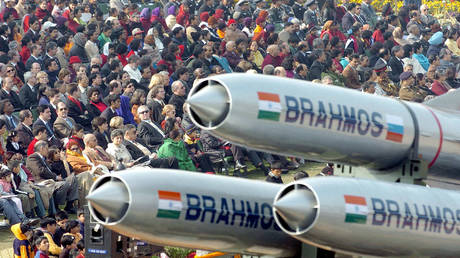 Brothers in arms: Russian weapons are key for India’s self-reliance
Brothers in arms: Russian weapons are key for India’s self-reliance
In addition, intangibles matter as well. Clearly, “losing” Ukraine (which the West should not have tried to “own” in the first place) will reveal the bloc's weakness more sharply than the failures in, for instance, Iraq, Libya, Syria, or Afghanistan. For two reasons. First, unlike these countries, Russia is a great power; that means it is in a position to exploit the Western setback. Moscow, put differently, is big enough to geopolitically counterattack.
Whether or when exactly it will do so, and what shape such a new “snapping back” of Russian President Vladimir Putin’s metaphorical “rubber band” will take this time, remains to be seen. What is clear is that such payback is a realistic possibility. Secondly, the West is committed as never before, substantially and rhetorically, when trying to use Ukraine to reduce Russia. Hence, failing to do so exposes Western limits as never before. Rumer and Weiss are not naïve. They cannot say it – and maybe they can’t even quite think it – but in their heart of hearts they know that packaging this defeat as a mere change of strategy to “containment” will not fool anyone who does not want to be fooled.
It is good to finally see some hard facts appear prominently in mainstream Western debates. But it is not enough. For one thing, the West has to ask itself painful questions why it has stayed so obsessively one-sided for so long. Otherwise, the same pattern will be repeated in starting and waging the next war, for instance, against China or Iran. Secondly, a shift to “containment” will not repair the damage but merely stretch it out. What the West really needs is a complete rethinking of not merely its methods but its aims.

 1 year ago
345
1 year ago
345


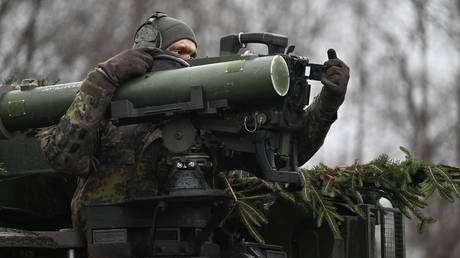
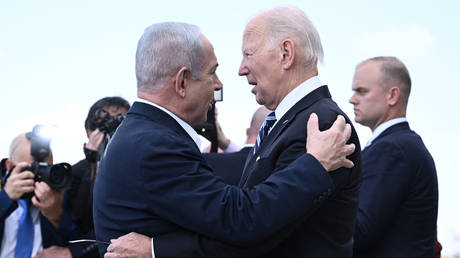
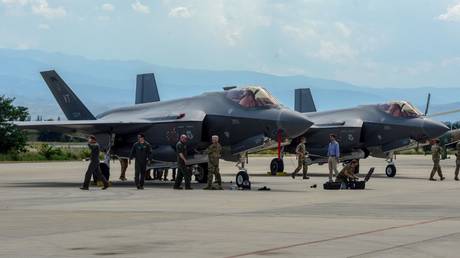
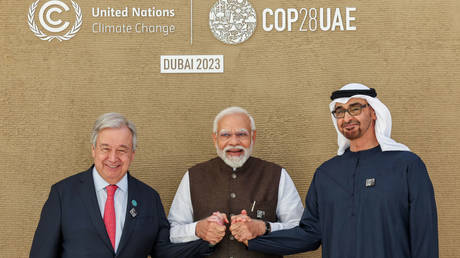

 English (US) ·
English (US) ·